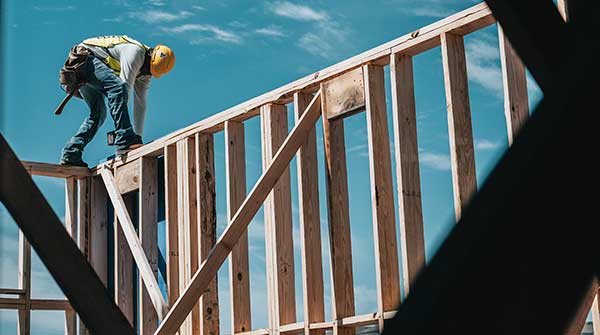Interest rates are crushing new housing builds. It is time for new solutions
 Governments in Canada need to get back into the housing game, and fast.
Governments in Canada need to get back into the housing game, and fast.
This means directly building non-market housing or buying and converting units to non-market rent.
Canadian federal, provincial, and municipal governments do, of course, have housing policies already. And they are usually premised on increasing supply – building more homes – but often any type will do, whether it’s affordable housing or mansions on farm fields.
Furthermore, governments rely on the private sector, and private sector incentives, to do this.
The problem with this is that, since the Bank of Canada started raising interest rates in March 2022, private-sector investment in new home builds has been cratering. It’s no surprise why: Everyone from homebuyers to apartment owners have to pay much higher mortgage interest costs and aren’t as interested in buying. So, the private sector can no longer turn a big profit on its construction projects, and it has increasingly stopped building.
Today, single-family home construction is down by a third compared to when the interest rate hikes started. The construction of semi-detached homes is down by a quarter. Row houses are down eight percent and apartment buildings are down 19 percent.
As you read this, we’re actually building less than we were at the worst of the 2020 pandemic lockdowns.
If this situation continues, we’ll feel it for years to come.
Why is this all happening?
First of all, it was a deliberate policy decision of the Bank of Canada.
Before the pandemic, the Bank used historical data to predict which areas of the economy would be hit hardest by interest rate hikes. Guess what topped the list: new residential investment. The items we use the most debt to buy, our houses, see the biggest impact when interest rates on that debt go through the roof.
When interest rates are higher, mortgage payments are higher on the same house costs.
This dampens new home construction, as the Bank predicted. People are less interested in buying houses, and builders have both fewer customers and higher costs. (They must hold more units through the construction process prior to their eventual sales.).
So, while governments may be setting goals on new houses built in the next 10 years, interest hikes are pushing us back to pandemic levels of investment. Policy has yet to catch up to the fact that we cannot continue to rely on the private sector to build in this high-interest-rate environment. Delivering housing affordability is critical, but it will have to happen another way.
What we really need is the federal government back in the housing game – by subbing in for the private sector.
Both the federal and provincial levels of government can do this by investing in new, affordable housing projects. They can build them directly or provide zero percent mortgages to non-profit housing providers to do it.
Municipal governments can change their zoning laws to make space for new builds.
Building takes time. In the shorter term, governments at all levels can provide subsidized credit to non-profit housing providers, including post-secondary institutions, to buy up already existing for-profit apartment buildings and make them non-market with lower rent. Ensuring rent controls apply to all buildings, with few exceptions, and that rent increases are kept small can also play a critical role.
We should also think outside the box and consider outlawing short-term rental platforms like Airbnb in larger cities for five years to make those spaces available for longer-term rental.
Overall, we need less reliance on the private sector to build housing.
Why? Because they have already stopped building it.
David Macdonald is a senior economist with the Canadian Centre for Policy Alternatives.
For interview requests, click here.
The opinions expressed by our columnists and contributors are theirs alone and do not inherently or expressly reflect the views of our publication.
© Troy Media
Troy Media is an editorial content provider to media outlets and its own hosted community news outlets across Canada.
